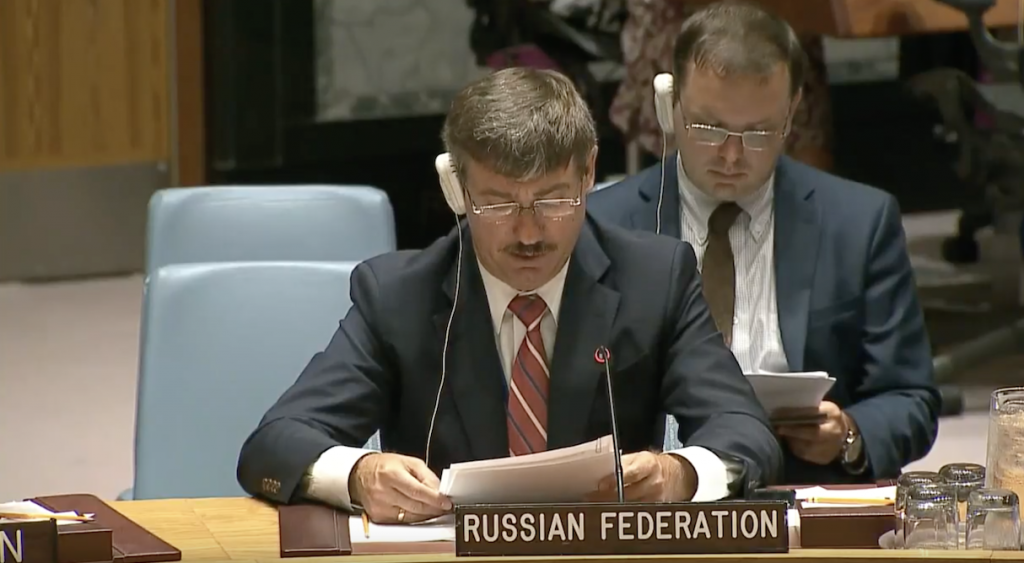Statement by Mr. Petr Iliichev, Chargé d'Affaires, at the Security Council on the situation concerning Haiti
We thank the Special Representative of the Secretary-General and Head of the United Nations Stabilization Mission in Haiti, Ms. Sandra Honoré Braithwaite, for her presentation of the SecretaryGeneral’s report (S/2017/604) and assessment of the situation in the country during the critical period of gradual transition from the current United Nations mission to a justice support mission.
Accordingly, in April we supported the adoption of resolution 2350 (2017), taking into account the important role that the United Nations plays in stabilizing the situation in the country and the need to continue to provide assistance to the Government of Haiti.
In their statements, members of the Security Council frequently emphasize the importance of transitional periods and stress that, once that stage has been completed, we can judge the effectiveness of the United Nations system and the Security Council in particular. We therefore have paid particularly close attention to the SecretaryGeneral’s report.
We note the positive assessments of the political process in the country, the establishment of a Government, the completion of the first 100 days of the administration of President Moïse and the gradual progress in improving national criminal legislation, as well as the establishment of the Haitian National Police strategic development plan for the period 2017-2021.
We take note of the view that Haiti stands ready to bear responsibility to independently address its challenges.
However, an analysis of the statistics noted in the report during the reporting period in connection with violations and the number of operations conducted by Blue Helmets and Berets indicates the need for a steadfast focus on security issues.
The Mission, the Secretariat and the Security Council are faced with the challenge of ensuring that the planned reforms do not generate a security vacuum. Consequently, the gradual drawdown of the military and police contingents and troop levels needs to be done in a very cautious manner. There must be certainty that the Government is in a position to independently and fully guarantee security and tranquillity for the Haitian people.
The second half of the report focuses on the transition from the United Nations Stabilization Mission in Haiti (MINUSTAH) to the United Nations Mission for Justice Support in Haiti. Once again, we would like to highlight what we referred to in April when resolution 2350 (2017) was adopted (see S/PV.7924).
In recent years, the Security Council has firmly advocated having mission mandates be as comprehensible, explicit and obtainable as possible.
That was the premise as we worked on resolution 2350 (2017). Ultimately, the resolution explicitly stipulates that the Council “[r] ecognizes the ownership and primary responsibility of the Government and the people of Haiti”. This is also referred to in paragraph 6, which focuses on the mandate of the Mission established.
It states that the United Nations Mission for Justice Support in Haiti “shall be mandated to assist the Government of Haiti”.
In that context, we noted that the wording, which focuses on the work of the future Mission is somewhat vague and it may be interpreted in a way to suggest that the Mission has certain independent functions and priorities that the Government must support.
We will closely monitor work along those lines, chiefly with regard to the need to deliver good services and monitor the human rights situation. Those duties must be carried out strictly in line with the mandate handed down by the Security Council.
In conclusion, we reiterate what the Council has stated repeatedly based on experience. The effective support of the United Nations is possible only when there is trust-based cooperation with the host State as it assumes the leadership role.
